
As the days get longer and we shed our winter layers, plenty of health experts recommend summer-proofing your lifestyle with changes to your diet, skincare, and eye protection, to name a few. According to Maria Sophocles, MD, gynecologist and Medical Director of Women’s Healthcare of Princeton, NJ, warm or humid weather can also mean other changes in your lifestyle pattern, like more time in swimsuits, short shorts, and athletic wear.
As temperatures rise, research shows that your risk for yeast infections and urinary tract infections (UTI) spikes. This is why Dr. Sophocles says it’s important to prioritize vaginal health to help avoid issues like itching, irritation, and infection.
With a few some simple summer rules, Dr. Sophocles and other women’s health experts say you can keep comfy and healthy all season long.
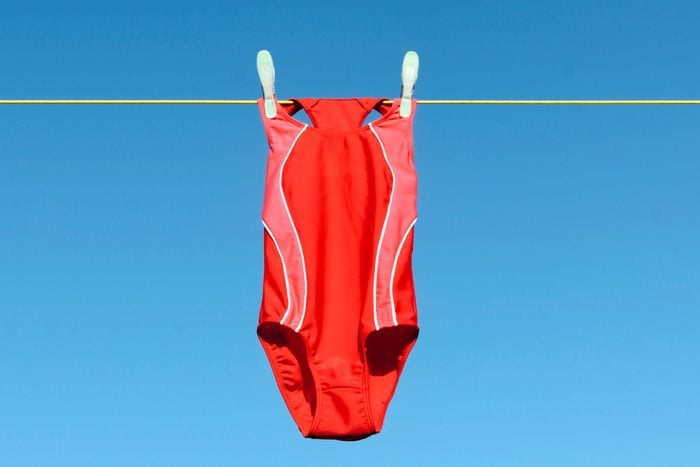
1. Get out of your wet swimsuit
Our experts told us this is a top seasonal faux pas. “The vulvar skin (the outer part of the vagina) is very delicate and easily irritated,” says Allison K. Rodgers, MD, OBGYN, Director of Education at Fertility Centers of Illinois, and author of We Need to Talk About Vaginas: An Important Book About Vulvas, Periods, Puberty, and Sex! Dr. Rodgers explains that warm, moist environments are a prime territory for yeast infections to flourish. “It’s important to dry off after swimming and change into dry clothes,” she says—or, if you’re spending the day at the pool, bring a second pair of swim bottoms.
Peeing in the Pool Isn’t Just Gross—It’s Actually Bad for You

2. …and those sweaty yoga pants
We’re all for breaking a sweat at your favorite fitness class—but think twice before running errands or heading to brunch in your favorite athletic wear. Like wet swimwear, sweaty yoga pants or workout shorts can up your odds of a yeast infection. However, “Bacteria thrives in moist places,” too, says Kelli Burroughs, MD, Department Chairman of Obstetrics and Gynecology at Memorial Hermann Sugar Land Hospital in Texas.
Bacterial vaginosis (BV) is an infection that results from an imbalance of good and bad bacteria downstairs. From diet to sex, many factors can contribute to BV—including summer heat. “In theory, increased sweating can alter the balance of bacteria, and so changes in the climate, especially warmer weather, could increase the frequency of a BV infection,” Dr. Burroughs says.
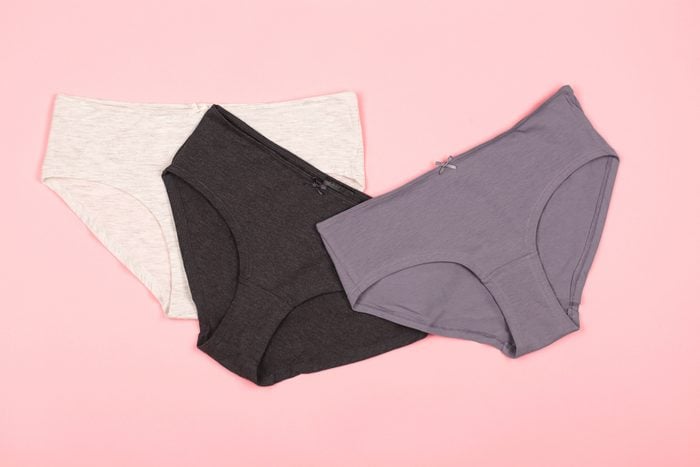
3. Wear breathable underwear
“In summer, the important thing to realize is that the vulva is a lot like the rest of the outside of your body in that it has hair follicles, oil glands, and sweat glands,” Dr. Sophocles explains. Synthetic fabrics like spandex and polyester can trap this sweat and oil, creating an ideal environment for bacteria, yeast, and odor. The experts advise opting for a moisture-absorbing fabric like cotton to help keep your skin dry—and here are some of the most breathable women’s underwear you can buy, according to gynecologists.
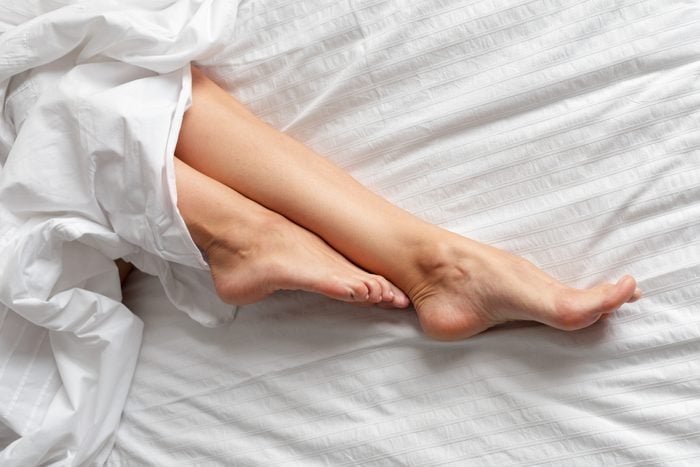
4. Sleep naked
Sleeping naked gives everything down there a chance to breathe, Dr. Sophocles says. In general, you want to keep your sleeping environment as cool and dry as possible for both vaginal health and better, deeper sleep. (The Cleveland Clinic recommends setting your thermostat to 60 to 67 degrees Fahrenheit for the best night’s rest, FYI.)
Sleeping in a Room With This Temperature Could Boost Your Metabolism
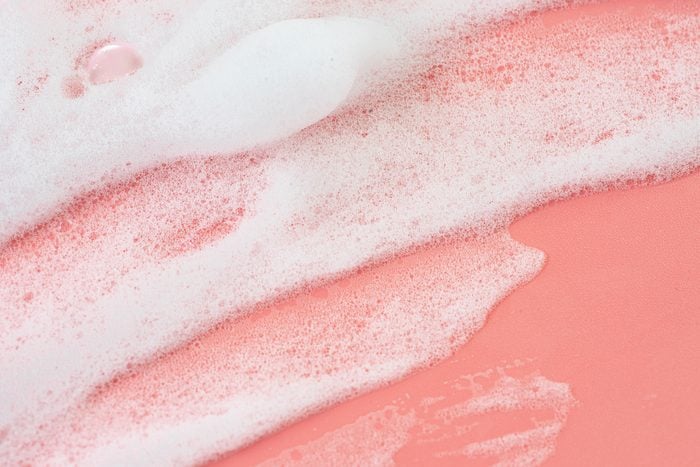
5. Cleanse gently
Chlorine, salt water, and sweat can cause irritation around your vulva—so you’ll want to rinse regularly during the summer months. But avoid using fragrant soaps or harsh products that can strip away your vagina’s natural protective oils and make irritation even worse.
Splashing with fresh water or using a mild cleansing soap on the outside only (never on the inside) will do the trick, Dr. Rodgers says. “There is a whole industry of products trying to convince you that your vulva needs something special to remove its odor and keep it healthy, but these products often can do more harm than good,” she says.
Plus, adds Dr. Burroughs, these scented products are one of the more common culprits behind BV infections.
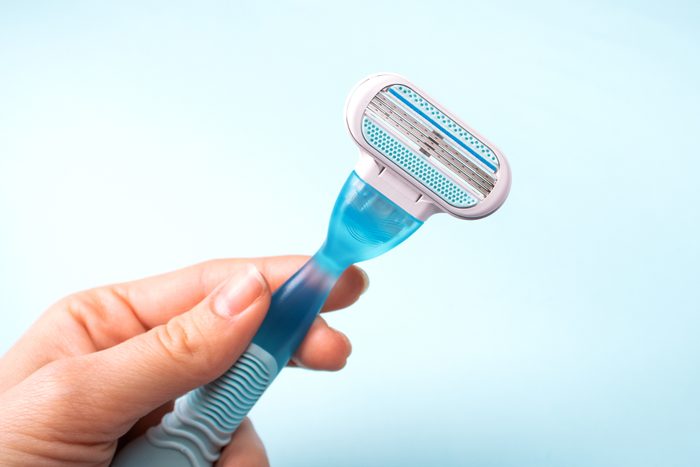
6. Shave and wax wisely
“Hair removal is a common cause of infections as well,” Dr. Rodgers says. “Shaving and even waxing can cause a condition called folliculitis, an irritation of the hair follicles.”
Folliculitis occurs when the hair is cut below the surface, and as it grows back, it curls and grows under the skin—causing ingrown hairs, bumps, pain, and sometimes infection. “Using a clean, fresh, sharp razor can help, but the best I’ve found is using an electric razor,” she says. “The sideburn edge can be great for the bikini line and cuts the hair just above the skin so it doesn’t cause the irritation that razors or waxing can cause.”
Dr. Sophocles adds that laser hair removal or depilatory creams can reduce irritation, too. Keep in mind that chlorine, saltwater, sweat, and friction from exercise can irritate this sensitive skin even more—so, waiting at least 24 hours after removing hair before swimming or exercise can give those hair follicles a chance to close and keep irritation at bay.

7. Stay hydrated
Warmer weather can trigger more UTIs, according to the Journal of Urology. The researchers say behavioral factors play a role—on average, people have more sex in the summer (learn why peeing after sex is important to prevent UTIs). But sweatier afternoons and longer happy hours mess with your hydration levels, too, which is a leading risk factor for UTIs.

8. Try a probiotic
Because the summer heat and moisture can disrupt your vagina’s pH and bacterial balance, taking a probiotic can be a preventive step for keeping everything in balance.
According to research published in Microorganisms, you’ll want to look for a supplement that contains a strain called Lactobacillus, a “good” bacteria that research has shown can reduce risk of BV and yeast infections. (Here’s our pick for the best probiotic.)
Get The Healthy @Reader’s Digest newsletter and follow The Healthy on Facebook, Instagram, and Twitter. Keep reading:
- Bikini Wax Wisdom from Waxing Specialists: 6 Things You Should Never Do, and 3 You Should
- Peloton Has Recalled 2.2 Million Bikes Due to Safety Concerns
- “Water Recipes” Have Taken Over Social Media, but Are They Healthy?
- 15 Things You Probably Aren’t Replacing Often Enough

